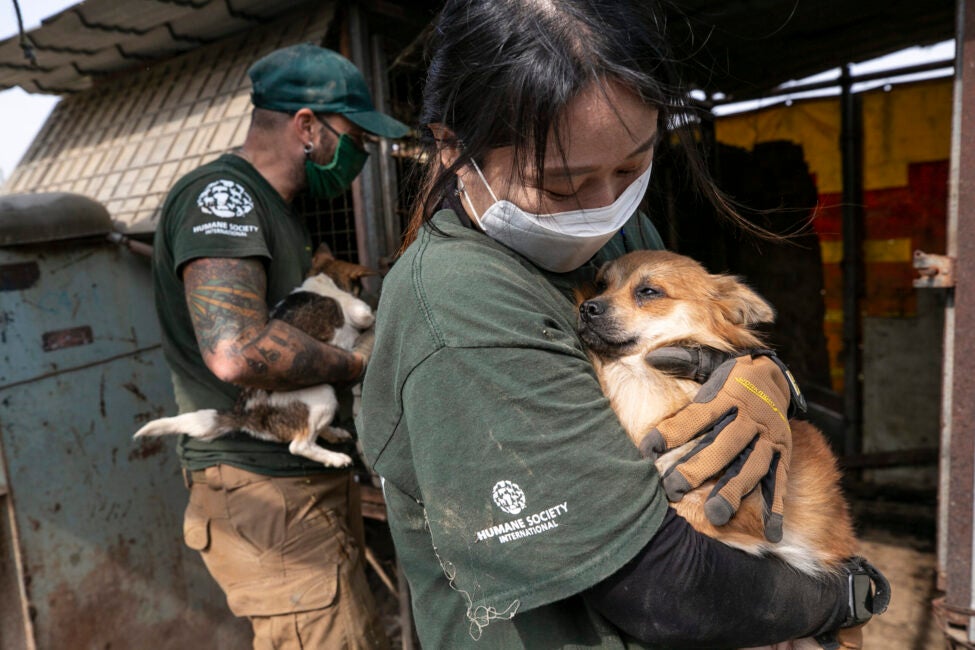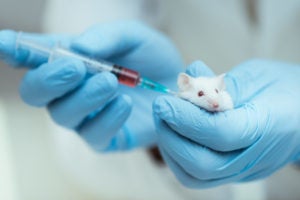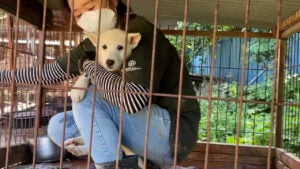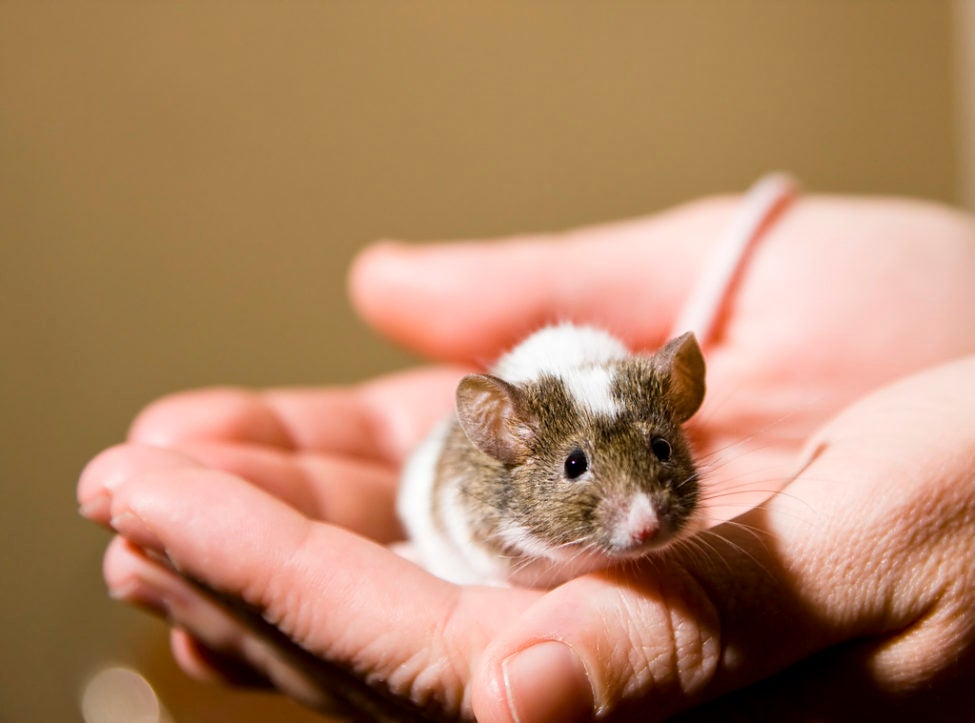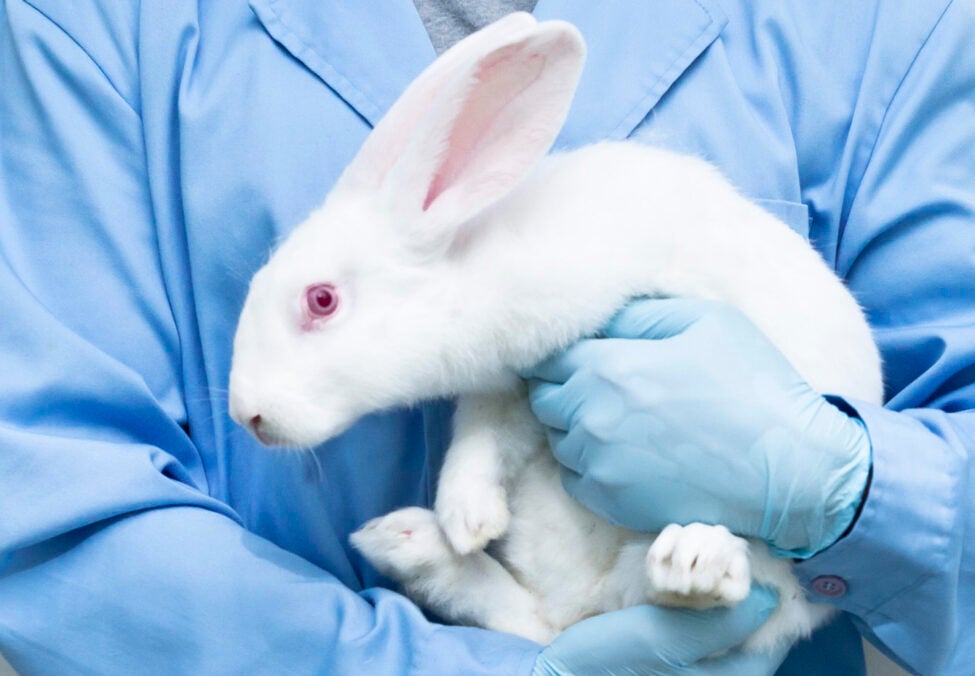
SEOUL—The South Korean government has announced its plan to set up a task force to consider a ban on the eating of dog meat. The joint announcement by government ministries comes after President Moon Jae-in suggested the time is right to consider a ban. The task force will include officials, civilian experts and stakeholder representatives, who will make recommendations on next steps to take and ways to end dog meat consumption. The discussions are expected to continue until April 2022.
The news is welcomed by Seoul-based animal protection organisation Humane Society International/Korea as a crucial step, but the organisation hopes for decisive action to end both the suffering of animals and the struggles of dog farmers. Since 2015, HSI/Korea has rescued almost 2,500 dogs from South Korean dog meat farms and permanently closed 17 dog farms in co-operation with farmers eager to exit the controversial and dying industry.
Nara Kim, Humane Society International/Korea’s End Dog Meat campaign manager, says:
“As someone who has visited many dog meat farms and witnessed first-hand the squalor, deprivation, and physical and mental trauma endured by the dogs, I dream of the day when this cruel industry will be consigned to South Korea’s history books. I really hope that this taskforce is a crucial step towards that goal, and HSI/Korea stands ready to contribute our expertise in dog meat farm closures and dog welfare. With more than a million dogs every year enduring excruciating suffering and brutal deaths and with many dog farmers struggling to make a living due to dwindling consumer demand, this taskforce must deliver a bold outcome that brings relief to all. Of course the dog meat association will oppose it, that’s to be expected, but the truth is that the market for dog meat is now so small, most dog farmers know there is no future in it and so it would be far better to launch a government-supported phase out. HSI/Korea has helped many farmers leave the dog meat industry behind them and switch to more sustainable and humane livelihoods. It’s better for them and of course better for the dogs who will no longer be born into a life of suffering.”
Download video and photos of HSI/Korea’s dog meat farm closure program in action.
Facts:
- HSI/Korea helps farmers transition to new, more humane and profitable livelihoods such as chili plant growing or water truck delivery. Most of the farmers with whom HSI/Korea has worked experience mounting societal, family and financial pressure to get out of farming dogs. With growing concern for animal welfare, and over six million pet dogs now living in Korean homes, demand for dog meat has dwindled.
- A 2020 opinion poll commissioned by HSI/Korea and conducted by Nielsen shows growing support for a ban on the dog meat trade, with nearly 84% of South Koreans saying they don’t or won’t eat dog, and almost 60% supporting a legislative ban on the trade.
- Although most people in South Korea don’t eat dog, the belief that dog meat soup will cool the body during the hot summer and build stamina still holds with some, particularly the older generation.
- In South Korea up to 1.5 million dogs a year are raised on thousands of farms across the country. Many of them are sold to butchers for Bok Nal season across July and August, to be killed by electrocution and sold for soup.*
- Dog meat is banned in Hong Kong, Taiwan, Thailand and Singapore, as well as the cities of Shenzhen and Zhuhai in mainland China, and Siem Reap province in Cambodia. An estimated 30 million dogs a year are still killed for meat in other parts of Asia.
ENDS
Media contact:
- HSI/Korea: Nara Kim: nkim@hsi.org
- HSI/United Kingdom: Wendy Higgins: whiggins@hsi.org
*Since publication of this press release and progress towards the decline of the dog meat industry in South Korea, current estimates suggest that up to 1 million dogs are reared on dog meat farms in the country.

